
Five reasons why dining in Japan may be the best in the world.
Japanese restaurants are famous for their delicious food and excellent service. There aren’t too many other restaurants in the world that people know by the owner’s name, but almost everyone knows about Jiro’s famous Sukiyabashi Jiro. And one of the most common praises Japan receives from tourists is the amazing dining experiences they had while there.
But what makes eating out in Japan so great? Aside from high-quality food – which can be subjective – what else makes Japanese restaurants better than others?
This week we’re counting down the top 5 crazy awesome features of Japanese restaurants. Is it something in the air? In the water? In the wasabi?! Today, we find out at last.
So let’s get to it! Starting off with…
Honorable Mention: Free “okawari” seconds of rice/bread/tea/water
After talking all about world-class sushi and service, it may seem kind of silly to bring up free extra food as one of the reasons Japanese restaurants are so great. But hey, I’m going to level with you: I’m a simple guy; the fancy stuff doesn’t do a lot for me, but I can definitely be enticed out of the house with the promise of free food.
While most Japanese restaurants don’t offer free extra helpings of the main dishes or special drinks, many of them offer free okawari (“seconds”) of rice or bread, and also tea and water, which can come as a surprise to those from countries where you usually have to pay.
You can usually get okawari three, four, five… as many times as you want. For those of us used to bigger portions than a typical Japanese meal, it really helps to fill in the cracks that would otherwise have you leaving still hungry.
The reason this is only an honorable mention is because not all Japanese restaurants offer it. But whenever you do see that magical phrase okawari jiyuu (おかわり自由) like on the menu above, you can rest assured that you’re guaranteed to go home stuffed.
#5. The “sumimasen!” bell
I’m not sure how it works in the rest of the world, but eating out in the U.S. is always a bit of an awkward experience. When you’re first ushered to your table by the server, you’re given about a three-second window to order your meal. If you know what you want, great. But if you want to look at the menu then you’re basically saying, “it could be anywhere from five minutes to five hours before I get a chance to order again.”
In the U.S. you’re at the complete mercy of your waiter/waitress. I’m not saying they do a bad job, but they are human, which means they can get busy and forget about you. All the while you’ve been sitting there for half an hour just wishing you could just order your food. Sure you could flag them down with a scream and a wild hand wave, but that’s even if you happen to spot them, and then you just feel bad.
Thankfully Japan is a bit more civilized. Most restaurants come equipped with a sumimasen (“excuse me”) bell at each table. Just one press and a few seconds later the server will be at your table ready to take your order.
And even if your table doesn’t have a bell, you can still just do it the old-fashioned way by yelling out sumimasen. It’s not seen as rude or strange, just something you’re supposed to do to get your server’s attention. What a country.
#4. Fake food sample displays
Japan can be a pretty intimidating country for tourists. Most people don’t speak English, and the signs everywhere are in crazy kanji hieroglyphics. So you might expect that eating out would be another linguistic disaster of epic proportions as people attempted to decipher the menu.
But that couldn’t be further from the truth! In Japan, lots of restaurants have life-size displays outside of their most popular dishes, so you can get a good look at exactly what you’ll be ordering before it appears in front of you.
And these aren’t hastily thrown-together pieces of plastic either. These are high-quality art pieces that look just as tantalizing as the real thing.
▼ Many displays even go the extra mile by having chopsticks
or spoons floating in the air, showing off how to best savor them.
#Awesome Food : #Fake Food in Japan! You can try to make them by yourself! [OC] https://t.co/w3ukN3Mi74 pic.twitter.com/CRFxciVcLI
— Vilo Kanis (@roofingchild) August 29, 2016
In the U.S. I’ve been enticed by menu pictures before only to be disappointed after seeing my meal placed in front of me, but almost never in Japan, because I was always able to see exactly what it would look like beforehand. There’s just something about a colorful 3-D model as opposed to 2-D photos that really get the stomach to make good decisions.
And if you’re a huge fan of Japan’s fake food like we are, then good news! You can now wear them on your head as an accessory.
#3. Paying at the cash register
Again I’m not sure how it works in other countries, but in the U.S. paying for your meal is often just as harrowing an experience as ordering it.
You either have to flag down your server or wait for them to come by and ask if you’d like your check, wait for them to take all the dishes away, wait again for them to bring the check, wait for them to come by again and take your payment, then wait for them to come by yet again to bring your change/card back. It can easily add an extra year or two to your mealtime.
But in Japan, it’s streamlined. There’s no waiting involved. As soon as you’re done with your meal, you just walk over to the register by the front of the restaurant and pay like you would for anything else. And… that’s it! You’re done. You’re free. You can go home a free human being.
▼ America, the land of the free… except for inside restaurants.
Then you should expect cruel and unusual punishment.
#2. Polite staff
I don’t want to rag on waiters/waitresses in the U.S., I know they have a super stressful job and are already under-appreciated enough as it is. But there’s just something about Japanese servers that makes going out to eat always feel like a trip to a mini Disney World.
It all starts with a warm, welcoming irasshaimse (“welcome!”) yelled out by the servers, making you feel like you’re their number-one concern. You’re guided to your table, told to ring the sumimasen bell whenever you need, and then left in peace to peruse the menu at your leisure. When you’re ready to order, they’re there at the push of a button, and after you pay and leave they thank you with a bow and arigato gozaimashita (“thank you very much”).
That may not sound very different from an average restaurant experience anywhere else in the world, but those who have dined out in Japan probably know what I mean when I say there’s just “something different” about it. Maybe it’s the smiles, or the extremely polite language that they use, or just the fact that they exude an aura that really makes it feel like they honestly want you to have the best possible dining experience of your life.
Maybe that’s why Japanese people feel like they’re being treated rudely when they go to other countries. It’s not that servers outside of Japan are mean, it’s just that the ones in Japan are so nice and pleasant than anything else feels rude in comparison. But then again when you’re used to restaurants that will even help name your baby, it’s tough to compete.
And the #1 most crazy awesome feature of Japanese restaurants is…
.
.
.
.
.
.
.
.
.
.
1. No tipping
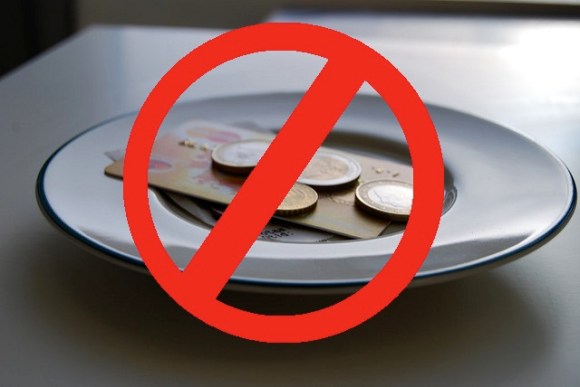
Oh yes. If you’ve been to Japan before then chances are you were expecting this one right from there start. And now here it is, at #1, right where it belongs.
Tipping is one of the biggest reasons I don’t go out to eat in the U.S. As soon as the bill comes, it’s like you’re playing a game of balancing your crying wallet against the amount of shame you mind enduring. How much do you tip? Is 10-percent too little? Is 20-percent too much? Do you base it on how they served you? Does it really matter if they forgot your side order of fries when they have kids to feed at home?
It’s just terrible. I don’t understand why food servers aren’t paid the same kind of hourly wage that everyone else is, and Japan agrees.
▼ If you leave yen on table when you leave a restaurant, you shouldn’t expect
to be thanked, only chased down to have it returned to you.
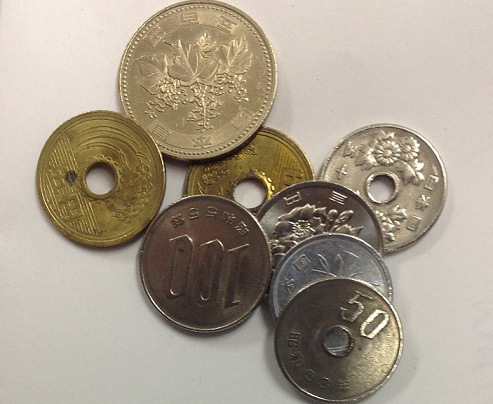
I have a theory that most of the other crazy awesome features on this list stem from having no tips. Why do they have bells to call your server? Because the servers aren’t trying to impress you with how well they can read your mind to get a bigger tip. Why do you pay at the cash register? Because there’s no tip-calculating that needs to be done in hushed whispers.
And perhaps most importantly: why is the service so great? This one is just my personal opinion, but as someone who has worked in a U.S. cafe that had tips, it was very easy to get jaded toward the customers. I’d go out of my way for customers and get no tip, or I’d do nothing special and get a tip – it felt random. That caused me to just perform the bare-minimum level of service, which I don’t think would’ve happened if I’d just been paid a little more and then didn’t have to feel mad at customers when they “didn’t pay me enough.”
Maybe I’m wrong, but either way, not worrying that my restaurant bill is going to be 20-percent larger when I’m done makes it a lot more appealing to go out to eat in Japan. In the U.S. I almost never leave my cave of homemade slop and swill. But in Japan I’m happy to go out with friends and family anytime, and no tips has a lot to do with that.
So there you have it, the top five most crazy awesome features of Japanese restaurants. Did we miss something that you really like about eating out in Japan? Let us know in the comments, so that we can add yet another reason to why you may want to consider immigrating to Japan.
Top image: GATAG (edited by RocketNews24)
W.T.F. Japan will be back next Thursday. In the meantime, give me a follow on Twitter and let me know if there’s any topics you’d like to see covered. See you next week!

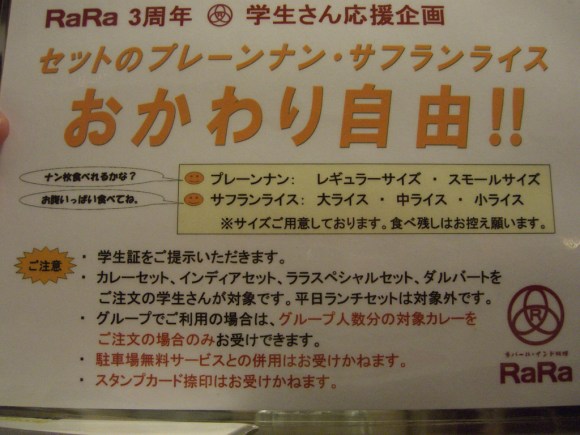
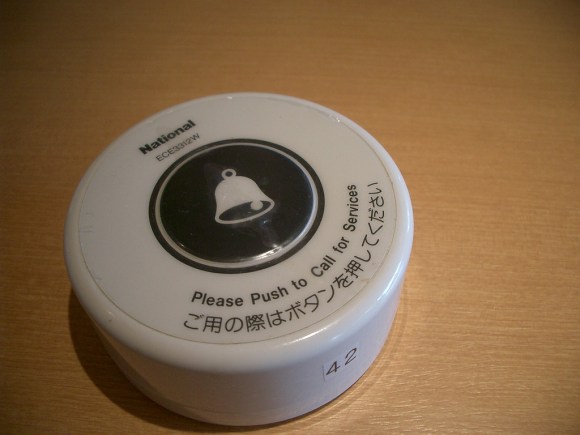
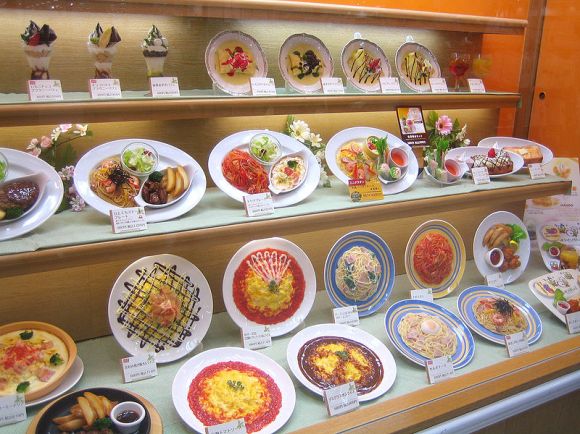
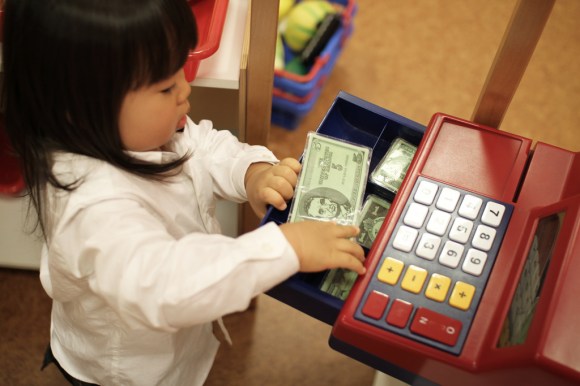

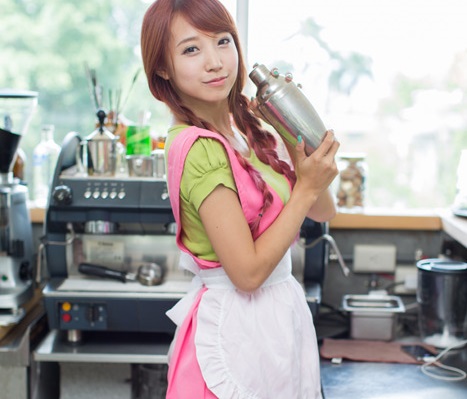
 W.T.F. Japan: Top 5 confusing Japanese hand gestures【Weird Top Five】
W.T.F. Japan: Top 5 confusing Japanese hand gestures【Weird Top Five】 W.T.F. Japan: Top 5 nicest sounds in Japan【Weird Top Five】
W.T.F. Japan: Top 5 nicest sounds in Japan【Weird Top Five】 W.T.F. Japan: Top 5 strangest ways to be polite in Japan 【Weird Top Five】
W.T.F. Japan: Top 5 strangest ways to be polite in Japan 【Weird Top Five】 W.T.F. Japan: Top 5 “shikata ga nai” (“it can’t be helped”) situations in Japan【Weird Top Five】
W.T.F. Japan: Top 5 “shikata ga nai” (“it can’t be helped”) situations in Japan【Weird Top Five】 W.T.F. Japan: Top 5 hardest Japanese habits to break 【Weird Top Five】
W.T.F. Japan: Top 5 hardest Japanese habits to break 【Weird Top Five】 Chance to play Teris on a massive staircase in Kyoto Station coming in March
Chance to play Teris on a massive staircase in Kyoto Station coming in March Ramen for 99 yen?!? Best value-for-money noodles found at unlikely chain in Japan
Ramen for 99 yen?!? Best value-for-money noodles found at unlikely chain in Japan Lawson adds doughnuts to its convenience store sweets range, but are they good enough to go viral?
Lawson adds doughnuts to its convenience store sweets range, but are they good enough to go viral? Viral Japanese cheesecake from Osaka has a lesser known rival called Aunt Wanda
Viral Japanese cheesecake from Osaka has a lesser known rival called Aunt Wanda What happens when our reporters show up to work dressed like their fathers?
What happens when our reporters show up to work dressed like their fathers? Fermented sushi? Two restaurants where you can get a same-day seat to try this gourmet treat
Fermented sushi? Two restaurants where you can get a same-day seat to try this gourmet treat The best Hobonichi diaries, covers and stationery for 2026
The best Hobonichi diaries, covers and stationery for 2026 Japan Extreme Budget Travel! A trip from Tokyo to Izumo for just 30,000 yen [Part 2]
Japan Extreme Budget Travel! A trip from Tokyo to Izumo for just 30,000 yen [Part 2] Here comes Japan’s newest fruit dessert sandwich: 7-Eleven’s purple Blueberry Sandwich!
Here comes Japan’s newest fruit dessert sandwich: 7-Eleven’s purple Blueberry Sandwich! Every weekend is an itasha car show at Akihabara’s UDX parking garage
Every weekend is an itasha car show at Akihabara’s UDX parking garage Starbucks Japan releases first-ever Hinamatsuri Girls’ Day Frappuccino
Starbucks Japan releases first-ever Hinamatsuri Girls’ Day Frappuccino Japanese restaurant chain serves Dragon Ball donuts and Senzu Beans this spring
Japanese restaurant chain serves Dragon Ball donuts and Senzu Beans this spring Highest Starbucks in Japan set to open this spring in the Tokyo sky
Highest Starbucks in Japan set to open this spring in the Tokyo sky Japan Extreme Budget Travel! A trip from Tokyo to Izumo for just 30,000 yen [Part 1]
Japan Extreme Budget Travel! A trip from Tokyo to Izumo for just 30,000 yen [Part 1] Japan has only one airport named after a samurai, so let’s check out Kochi Ryoma【Photos】
Japan has only one airport named after a samurai, so let’s check out Kochi Ryoma【Photos】 Japan’s craziest burger chain takes menchi katsu to new extreme levels
Japan’s craziest burger chain takes menchi katsu to new extreme levels Japanese drugstore sells onigiri at pre-stupid era prices, but how do they compare to 7-Eleven?
Japanese drugstore sells onigiri at pre-stupid era prices, but how do they compare to 7-Eleven? Yakuzen ramen restaurant in Tokyo is very different to a yakuza ramen restaurant
Yakuzen ramen restaurant in Tokyo is very different to a yakuza ramen restaurant Tokyo Skytree turns pink for the cherry blossom season
Tokyo Skytree turns pink for the cherry blossom season Japan’s newest Shinkansen has no seats…or passengers [Video]
Japan’s newest Shinkansen has no seats…or passengers [Video] Starbucks Japan releases new sakura goods and drinkware for cherry blossom season 2026
Starbucks Japan releases new sakura goods and drinkware for cherry blossom season 2026 Foreigners accounting for over 80 percent of off-course skiers needing rescue in Japan’s Hokkaido
Foreigners accounting for over 80 percent of off-course skiers needing rescue in Japan’s Hokkaido Super-salty pizza sends six kids to the hospital in Japan, linguistics blamed
Super-salty pizza sends six kids to the hospital in Japan, linguistics blamed Starbucks Japan unveils new sakura Frappuccino for cherry blossom season 2026
Starbucks Japan unveils new sakura Frappuccino for cherry blossom season 2026 Foreign tourists in Japan will get free Shinkansen tickets to promote regional tourism
Foreign tourists in Japan will get free Shinkansen tickets to promote regional tourism The 10 most annoying things foreign tourists do on Japanese trains, according to locals
The 10 most annoying things foreign tourists do on Japanese trains, according to locals Take a trip to Japan’s Dododo Land, the most irritating place on Earth
Take a trip to Japan’s Dododo Land, the most irritating place on Earth Naruto and Converse team up for new line of shinobi sneakers[Photos]
Naruto and Converse team up for new line of shinobi sneakers[Photos] Is China’s don’t-go-to-Japan warning affecting the lines at a popular Tokyo gyukatsu restaurant?
Is China’s don’t-go-to-Japan warning affecting the lines at a popular Tokyo gyukatsu restaurant? Survey asks foreign tourists what bothered them in Japan, more than half gave same answer
Survey asks foreign tourists what bothered them in Japan, more than half gave same answer Japan’s human washing machines will go on sale to general public, demos to be held in Tokyo
Japan’s human washing machines will go on sale to general public, demos to be held in Tokyo Starbucks Japan releases new drinkware and goods for Valentine’s Day
Starbucks Japan releases new drinkware and goods for Valentine’s Day We deeply regret going into this tunnel on our walk in the mountains of Japan
We deeply regret going into this tunnel on our walk in the mountains of Japan Studio Ghibli releases Kodama forest spirits from Princess Mononoke to light up your home
Studio Ghibli releases Kodama forest spirits from Princess Mononoke to light up your home Major Japanese hotel chain says reservations via overseas booking sites may not be valid
Major Japanese hotel chain says reservations via overseas booking sites may not be valid Put sesame oil in your coffee? Japanese maker says it’s the best way to start your day【Taste test】
Put sesame oil in your coffee? Japanese maker says it’s the best way to start your day【Taste test】 No more using real katana for tourism activities, Japan’s National Police Agency says
No more using real katana for tourism activities, Japan’s National Police Agency says W.T.F. Japan: Top 5 crazy things about Japanese supermarkets 【Weird Top Five】
W.T.F. Japan: Top 5 crazy things about Japanese supermarkets 【Weird Top Five】 W.T.F. Japan: Top 5 reasons sleeping on the floor Japanese-style is awesome 【Weird Top Five】
W.T.F. Japan: Top 5 reasons sleeping on the floor Japanese-style is awesome 【Weird Top Five】 W.T.F. Japan: Top 5 best Tamagotchi releases 【Weird Top Five】
W.T.F. Japan: Top 5 best Tamagotchi releases 【Weird Top Five】 W.T.F. Japan: Top 5 hand gestures that Japanese people don’t understand【Weird Top Five】
W.T.F. Japan: Top 5 hand gestures that Japanese people don’t understand【Weird Top Five】 W.T.F. Japan: Top 5 strangest Japanese home goods【Weird Top Five】
W.T.F. Japan: Top 5 strangest Japanese home goods【Weird Top Five】 W.T.F. Japan: Top 5 strange things Japanese people do for Christmas【Weird Top Five】
W.T.F. Japan: Top 5 strange things Japanese people do for Christmas【Weird Top Five】 W.T.F. Japan: One year anniversary special! Top 5 W.T.F. Japan articles 【Weird Top Five】
W.T.F. Japan: One year anniversary special! Top 5 W.T.F. Japan articles 【Weird Top Five】 W.T.F. Japan: Top 5 strange Japanese office occurrences【Weird Top Five】
W.T.F. Japan: Top 5 strange Japanese office occurrences【Weird Top Five】 W.T.F. Japan: Top 5 craziest things about the Japanese medical system【Weird Top Five】
W.T.F. Japan: Top 5 craziest things about the Japanese medical system【Weird Top Five】 W.T.F. Japan: Top 5 biggest Japanese food challenges【Weird Top Five】
W.T.F. Japan: Top 5 biggest Japanese food challenges【Weird Top Five】 W.T.F. Japan: Top 5 most annoying sounds in Japan 【Weird Top Five】
W.T.F. Japan: Top 5 most annoying sounds in Japan 【Weird Top Five】 W.T.F. Japan: Top 5 confusing Japanese Internet slang words 【Weird Top Five】
W.T.F. Japan: Top 5 confusing Japanese Internet slang words 【Weird Top Five】 W.T.F. Japan: Top 5 odd ways Japanese people beat the summer heat【Weird Top Five】
W.T.F. Japan: Top 5 odd ways Japanese people beat the summer heat【Weird Top Five】 W.T.F. Japan: Top 5 most insane kanji place names in Japan【Weird Top Five】
W.T.F. Japan: Top 5 most insane kanji place names in Japan【Weird Top Five】 W.T.F. Japan: Top 5 kanji with the longest readings 【Weird Top Five】
W.T.F. Japan: Top 5 kanji with the longest readings 【Weird Top Five】